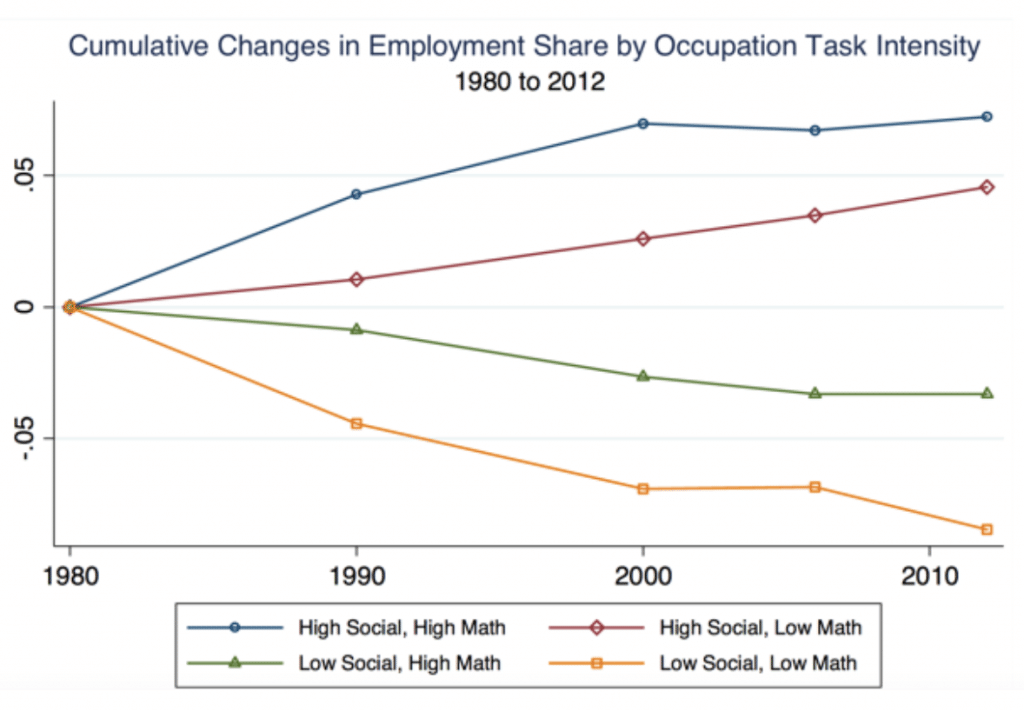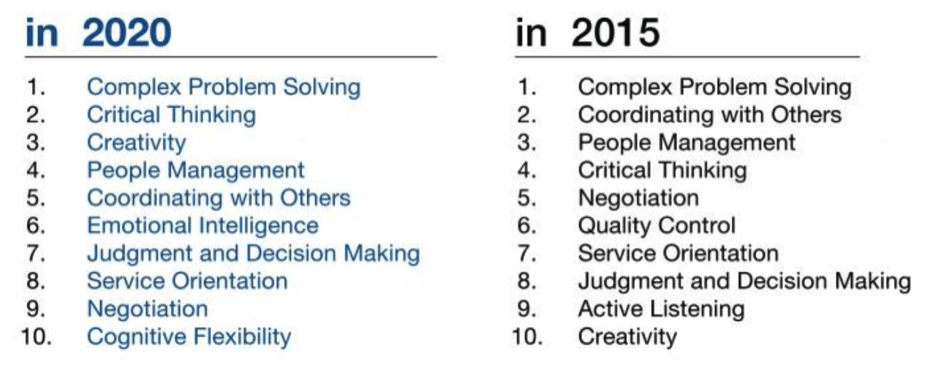By Matilde Rebori and Morten Melby
Soft values are the way forward
"Soft" values will become an overriding focus in the labor market in the year 2020. This was the conclusion of the World Economic Forum meeting in Switzerland in 2016. In the context of the upheaval caused by the fourth industrial revolution, it's important to remember that it's us humans who drive technology, not the other way around.
Learn more about Feedback with Feedwork
You've most likely taken a "Math" class at some point in your life, maybe in high school, but have you ever taken an "Emotional Intelligence" course in school? Probably not. This skill is one of the top 10 most sought-after traits for employees in 2020.
While hard skills are highly sought after by employers, soft skills such as leadership, communication and collaboration are also on top companies' list of most sought-after skills this year. According to LinkedIn, 57% of managers say soft skills are more important than hard skills.
Changing needs of employers
Contrary to what you might imagine, good social skills are not only required for lawyers and communication advisors, but also for financial managers and software developers. We may need to reframe our idea of the stereotypical geeky programmer who sits quietly at his or her desk and makes magic at the computer. The expectations for them will change. In the future, they will have to communicate with customers and colleagues themselves, preferably in a sensible way.
For example, think of the famous "Greed is good" speech from the movie Wall Street (1987), would it be the same if Gordon Gekko was a poor communicator? I doubt it.
It's worth noting that jobs that require good social skills are the ones experiencing the most growth.
DavidDemming, a professor at Harvard University, argues that over the past decades, the amount of tasks requiring social skills has increased by over 20 percent, more than double the growth that analytical (mathematical) tasks have experienced. His research (see graph below) shows that between 1980 and 2012, jobs with exclusively mathematical requirements have seen a decline, largely because computers are taking over many of their tasks. On the other hand, employees who combine math and social skills are the ones who thrive in our current labor market.

This gives us a new - and surprising - perspective in understanding what organizations look for when hiring.
Increasing importance of social skills
Traditional skills are no longer enough. Skills like collaboration, communication and problem solving are becoming more and more in demand. These skills are best trained through what we call "Social Emotional Learning" (internationally abbreviated as "SEL"). You might be thinking, what on earth is SEL? Don't worry, it's just a fancy word for something quite simple. CASEL, the world's leading organization for supporting social and emotional learning in schools, defines SEL as follows:
"The process through which children and adults acquire and effectively use the knowledge, attitudes and skills needed to understand and manage emotions, set and achieve positive goals, feel and empathize with other people, build and maintain positive relationships and make responsible decisions."
Social emotional competencies are not only important in jobs that typically require strong interpersonal skills, such as educators and teachers, but also in other areas of expertise such as engineering.
Innovation Manager Hanne Shapiro from the Danish Technological Institute encourages engineers to think more like anthropologists. According to her, MSc graduates should also be good at working in virtual teams and engaging directly with customers. Even though these are not traditional expectations and competencies among engineers and science graduates.
How haveneeds shifted?
The World Economic Forum's report, The Future of Jobs, provides exciting insights into the top 10 most important skills for employees in 2020, compared to 2015.
Here we also see SEL and emotional literacy playing a key role and becoming more relevant:

Conclusion
The conclusionmust be: Of course you can naturally build better social skills throughout your working life - it's never too late to learn something new, as we all know - but what if it's exactly these skills that can land you your dream job?







.png)
